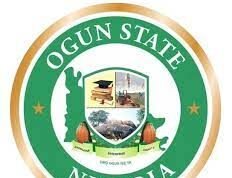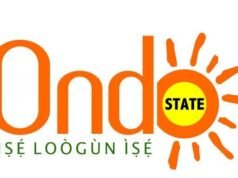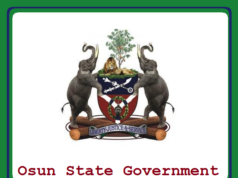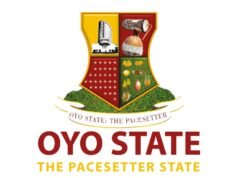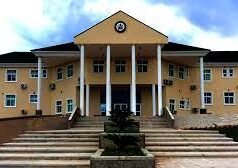Securing quality education can be a financial challenge for many students worldwide. Recognizing this predicament, the World Bank has established an Undergraduate Scholarship program to help financially challenged but determined students achieve their academic goals.
This post will guide you on the eligibility criteria, required documentation, and the application process for this prestigious scholarship.
Eligibility Criteria for World Bank Undergraduate Scholarship
Table of Contents
When applying for the World Bank Undergraduate Scholarship, there are several important eligibility criteria that must be met to be considered for the program. While these guidelines may seem strict, they are designed to ensure the scholarship is awarded to those who need it most and are committed to making a difference in their communities.
- Field of Study: The field of study must align with the World Bank’s mission of reducing poverty and supporting sustainable development. Applicants should thus choose a course related to development, such as economics, finance, education, public health, social sciences, engineering, urban planning, agriculture, natural resources and others.
- Age: There is typically an age restriction on applications. The specific age limit can vary, so applicants are advised to check the most recent guidelines on the World Bank website.
- Leadership Potential: The World Bank is keen on investing in future leaders who will drive change and contribute to their communities and countries. Therefore, applicants should exhibit strong leadership skills and potential, evidenced by extracurricular activities, volunteer work or work experiences.
- Commitment to Return Home: Upon completion of their studies, scholarship recipients must be willing to return to their home countries to apply and disseminate their new knowledge and skills in their communities.
- Language Skills: The World Bank Undergraduate Scholarship usually requires applicants to have proficiency in English, as most of the courses are conducted in this language. However, for non-native English speakers, language requirements may vary depending on the university, so it is advisable to check the specific requirements of your chosen institution.
Please note, these criteria are indicative and may vary year to year. Potential applicants should always check the official World Bank website or contact the World Bank directly for the most up-to-date information regarding eligibility for the scholarship.
Required Documents for World Bank Undergraduate Scholarship
To successfully apply for the World Bank Undergraduate Scholarship, there are various documents you need to prepare and submit. The required documentation mainly serves to substantiate the eligibility criteria outlined earlier. Here are the crucial pieces of documentation you’ll need:
- Personal Information: You will need to provide official identification documentation such as a passport or national ID card. This is to verify your citizenship status.
- Academic Records: As evidence of your academic excellence, you will need to provide transcripts from your high school, as well as any colleges or universities you may have attended. If these transcripts are not in English, official translations may be required.
- Recommendation Letters: You will need to provide letters of recommendation from teachers, school administrators, or professionals who can attest to your academic abilities and commitment. These letters should highlight your academic achievements, leadership potential, and dedication to your chosen field of study.
- Proof of Financial Need: This could be in the form of bank statements, income tax returns, or a letter from a local authority or charity confirming your economic status. The objective is to demonstrate that you lack the financial means to pursue your education without this scholarship.
- Study Plan or Research Proposal: You will need to provide a comprehensive study plan or research proposal which aligns with the World Bank’s mission. This document should explain why you have chosen your specific field of study, how it relates to development in your home country, and how you plan to utilize your education upon return.
- CV or Resume: This document should detail your academic achievements, work experiences, volunteer work, and any leadership roles you’ve held. The aim is to demonstrate your leadership potential and commitment to your community.
- Proof of Admission: If you’ve already secured admission to an undergraduate program at a recognized university, you will need to provide an admission letter from that institution.
Remember, these document requirements are subject to change and may vary from year to year. It is crucial to verify the latest requirements from the official World Bank website or directly contacting the World Bank before initiating your application.
Read Also: Federal Government Scholarship Award
How To Apply For World Bank Undergraduate Scholarship
Applying for the World Bank Undergraduate Scholarship may seem like a daunting task, but by following these steps, you can simplify the process and enhance your chances of success:
- Research the Scholarship: The first step is to visit the official World Bank website to gather detailed information about the scholarship, including eligibility criteria, required documents, and deadlines. Ensure that you understand every aspect of the scholarship requirements.
- Choose Your Course and Institution: Decide on the undergraduate course and institution that aligns with the World Bank’s mission of poverty reduction and sustainable development. Remember, this scholarship is only available for specific fields of study related to development.
- Prepare Your Documents: Based on the list of required documents mentioned earlier, begin collating and preparing your documentation. Ensure you have all documents such as personal identification, academic records, recommendation letters, proof of financial need, a comprehensive study plan, your CV, and proof of language proficiency.
- Secure Admission: You need to secure admission into the undergraduate program at a recognized university before applying for the scholarship. Obtain your admission letter as this will be part of the required documents.
- Online Application: Applications are typically submitted online via the official World Bank website. Carefully fill out all the sections of the application form, and remember to save a draft of your application to avoid losing any information.
- Attach Your Documents: Attach the required documents in the designated format and size as specified on the World Bank website. Make sure to double-check that all the required documents have been uploaded and are correctly formatted.
- Review Your Application: Thoroughly review your application to ensure that all the information provided is accurate and that there are no omissions or errors. It is advisable to have a trusted mentor or advisor review your application for a second opinion.
- Submit Your Application: Once you have completed your application and are satisfied with it, submit your application before the deadline. Late submissions are usually not considered.
Each of these steps is crucial to ensure a successful application process. It is important to start early, be diligent, and stay organized throughout the process. The effort you put into your application could be the key to securing the World Bank Undergraduate Scholarship.
FAQS
How to get World Bank scholarship?
To obtain a World Bank scholarship, you typically need to apply for specific scholarship programs administered by the World Bank or partner organizations. These programs often have eligibility criteria based on factors such as academic merit, leadership potential, financial need, and citizenship of eligible countries.
How to get fully funded scholarship in USA for undergraduate international students?
- Fully funded scholarships for undergraduate international students in the USA are typically awarded by universities, government agencies, private organizations, and foundations. To secure such scholarships, international students need to research and identify institutions or programs offering fully funded opportunities for undergraduates. The application process usually involves submitting academic transcripts, standardized test scores (such as the SAT or ACT), letters of recommendation, essays, and financial documentation. Additionally, some scholarships may require applicants to demonstrate proficiency in English through standardized tests like the TOEFL or IELTS. Prospective students should explore scholarship databases, university websites, and government-sponsored scholarship programs to identify suitable opportunities and follow the application guidelines provided.
How to apply for Joint Japan World Bank Graduate scholarship Program?
- To apply for the Joint Japan World Bank Graduate Scholarship Program (JJ/WBGSP), prospective candidates typically need to meet eligibility criteria set by the World Bank and the partner institutions. The application process usually involves the following steps:
- Check eligibility: Review the eligibility criteria for the JJ/WBGSP, which often include citizenship of eligible developing countries, a bachelor’s degree, relevant work experience, and admission to a master’s degree program in a preferred field of study.
- Apply for admission: Apply for admission to a participating university and master’s degree program in a development-related field.
- Submit scholarship application: Complete the online scholarship application form through the World Bank’s official website during the designated application period. Provide required documents such as academic transcripts, letters of recommendation, a statement of purpose, and proof of admission to the master’s program.
- Await notification: After the application deadline, the selection committee reviews applications and notifies successful candidates. Shortlisted applicants may be invited for interviews or additional assessments as part of the selection process.
What is the World Bank scholarship for SOAS?
The World Bank Scholarship for the School of Oriental and African Studies (SOAS), University of London, is a partnership program that aims to support outstanding students from developing countries pursuing master’s degrees in development-related fields at SOAS. The scholarship covers tuition fees, living expenses, travel costs, and other allowances. Eligible candidates can apply for the scholarship through the World Bank’s official website or through SOAS’s scholarship portal, following the application guidelines and deadlines specified for the program.
Which degree is best for World Bank?
The World Bank employs professionals from various academic backgrounds to address global development challenges effectively. While there is no specific “best” degree for working at the World Bank, degrees in fields such as economics, public policy, international development, finance, engineering, environmental science, and social sciences are commonly sought after. Individuals interested in pursuing careers at the World Bank should choose degrees that align with their interests, skills, and career goals.
Conclusion
Securing a World Bank Undergraduate Scholarship is a significant achievement that can profoundly impact your educational journey and future career. While the application process can seem overwhelming, the rewards of this prestigious scholarship can far outweigh the effort and time invested. The critical point to remember is that the World Bank is not just looking for excellent students, but also for future leaders dedicated to driving change and contributing to the development of their communities and nations.
By thoroughly understanding the eligibility criteria, preparing your documentation diligently, and approaching the application process strategically, you can increase your chances of being selected for this scholarship. Start your application early, stay organized, and keep focused on the goal ahead. Remember, this scholarship is more than just financial assistance; it’s an opportunity to make a difference in your life, your community, and potentially, the world.


